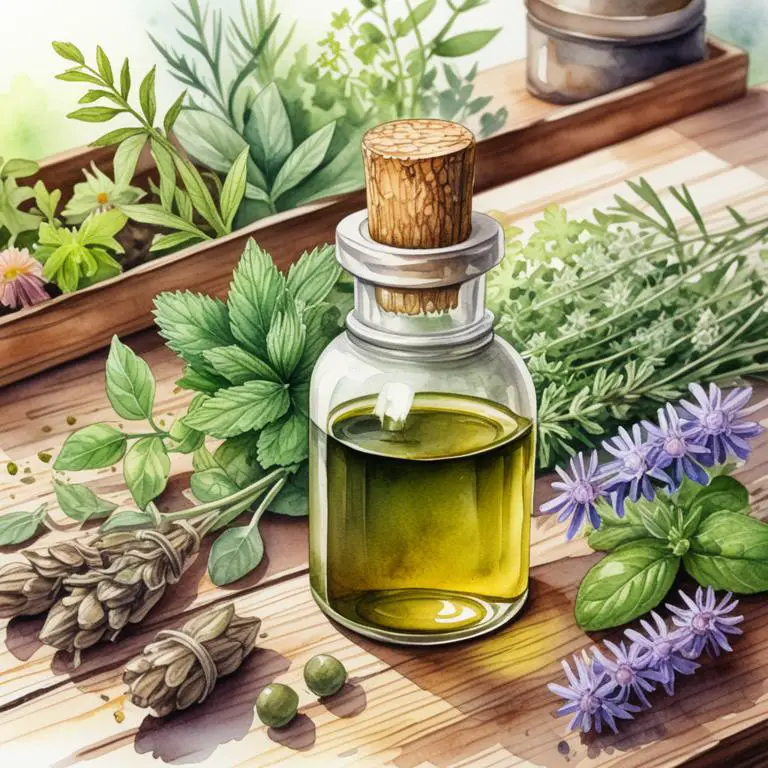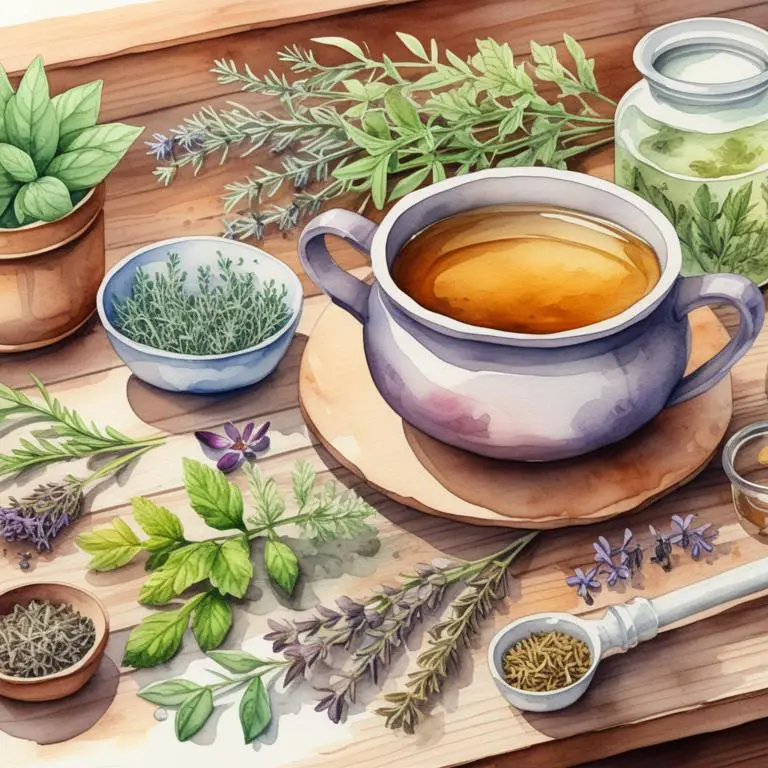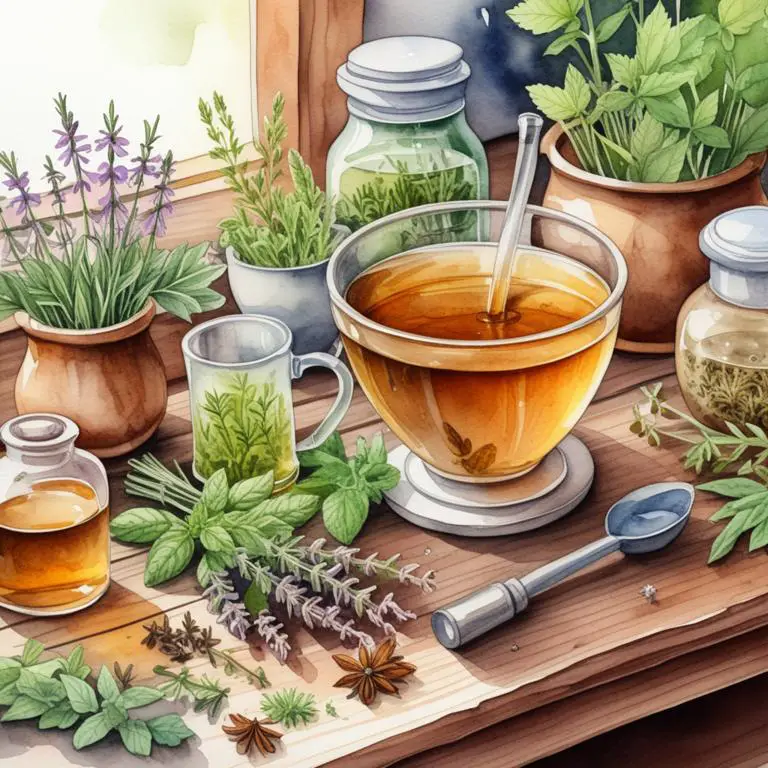Updated: Dec 1, 2024
Lymph Node Swelling: Exploring the Causes and Herbal Preparations

Lymph node swelling, also known as lymphadenopathy, is when your lymph nodes become inflamed and swollen.
This can make you feel tired, feverish, and uncomfortable. Imagine having a sore throat that just won't go away, or feeling like you're coming down with a cold, but you can't shake it off. Lymph node swelling can be caused by a variety of things, such as an infection, like a cold or flu, or an autoimmune disorder like rheumatoid arthritis. It can also be a sign of a more serious condition, like cancer. When your lymph nodes are swollen, they can't function properly, which means your body has trouble fighting off infections and toxins. This can make you feel run down and sluggish. But there are some herbal remedies that can help.
One of the best herbs for lymph node swelling is echinacea, also known as coneflower. This herb has anti-inflammatory properties that can help reduce swelling and fight off infections. Another herb that's great for lymph node swelling is elderberry. This herb has antiviral properties that can help combat infections and reduce inflammation. You can use these herbs in a variety of ways. You can drink teas made from dried echinacea flowers or elderberry berries. You can also take supplements or capsules containing these herbs. Some people like to make a warm compress with dried echinacea flowers and apply it to their swollen lymph nodes.
Whatever way you choose to use these herbs, they can help reduce inflammation and promote healing in your lymph nodes.
Table of Contents
- What causes the swelling of lymph nodes?
- What benefits can be expected from using herbs to address lymph node swelling?
- What are the primary herbs used in the treatment of lymph node swelling?
- What herbal preparations are commonly recommended for lymph node swelling?
- What herbs can worsen lymph node swelling and should be avoided?
- FAQ
What causes the swelling of lymph nodes?
The main causes of lymph node swelling are infections and diseases that affect the body's immune system.
Tonsillitis, for example, is a sore throat caused by a bacterial or viral infection that can spread to the lymph nodes in the neck, making them swell. This is because the immune system is fighting off the infection and needs more lymph nodes to filter out the bad cells. Sinusitis, an infection of the sinuses, can also cause lymph node swelling. When the sinuses become infected, the bacteria or virus can spread to the lymph nodes in the neck and underarm area, causing them to become swollen. Infectious Mononucleosis, also known as mono or glandular fever, is a viral infection that causes the lymph nodes in the neck and underarm area to swell.
This is because the virus attacks the immune system, causing it to produce more lymph nodes to fight off the infection. Lymphoma is a type of cancer that affects the immune system and can cause lymph node swelling. When a person has lymphoma, the abnormal white blood cells, called lymphocytes, multiply and accumulate in the lymph nodes, causing them to become swollen. Infectious Endocarditis is a bacterial infection of the heart that can spread to the lymph nodes in the chest and underarm area. This is because the bacteria can enter the bloodstream and attach to the lymph nodes, causing them to become swollen. Tuberculosis is a bacterial infection that primarily affects the lungs, but can also cause lymph node swelling in the neck and underarm area.
When the bacteria infect the lungs, they can spread to the lymph nodes, causing them to become swollen.
What benefits can be expected from using herbs to address lymph node swelling?
Using herbs to address lymph node swelling can provide several benefits.
One of the main advantages is that these herbs can help reduce inflammation in the body, which is often the cause of swollen lymph nodes. They can also boost the immune system, allowing it to fight off infections and diseases that may be contributing to the swelling.
Some herbs can also improve circulation, helping to remove toxins and waste from the body and reduce swelling. Additionally, certain herbs have anti-bacterial and anti-viral properties, making them effective in treating infections that may be causing the swelling.
By using these herbs, individuals can also reduce their reliance on pharmaceuticals and experience fewer side effects, making them a more natural and holistic approach to managing lymph node swelling.
What are the primary herbs used in the treatment of lymph node swelling?
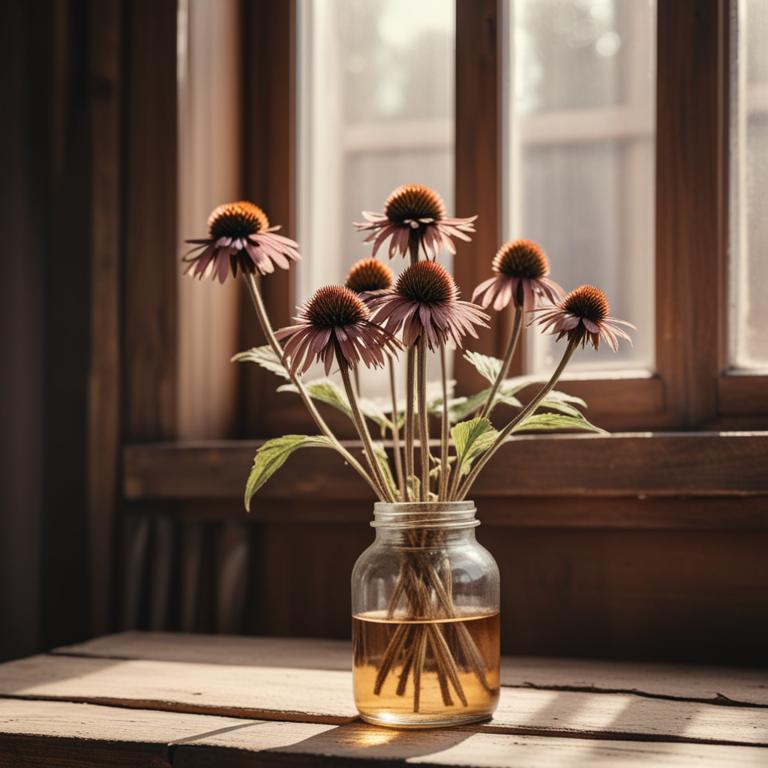
Herbs can be a great natural way to help with lymph node swelling.
Let's take a look at some of the herbs that can help. Echinacea purpurea, also known as coneflower, is a popular herb for immune system support. It has anti-inflammatory properties that can help reduce swelling and fight off infections that can cause lymph node swelling. Another herb that can be beneficial is Zingiber officinale, or ginger. It's known for its anti-inflammatory properties, which can help reduce pain and swelling in the lymph nodes. Ginger also helps to improve circulation, which can aid in the removal of toxins and excess fluids that can cause lymph node swelling. Astragalus membranaceus is a Chinese herb that's often used to boost the immune system.
It contains compounds that can help reduce inflammation and promote healing in the body. This can be especially helpful in cases of lymph node swelling caused by infections or autoimmune disorders. Silybum marianum, also known as milk thistle, is an herb that's traditionally used to support liver health. The liver plays a crucial role in removing toxins from the body, and when it's functioning properly, it can help reduce lymph node swelling caused by excess toxins. Milk thistle contains compounds that can help protect the liver and promote its function. Finally, Taraxacum officinale, or dandelion, is an herb that's often used to support the lymphatic system. It contains compounds that can help stimulate the lymph nodes and promote the removal of toxins and excess fluids from the body.
This can be especially helpful in cases of lymph node swelling caused by water retention or other fluid-related issues.
What herbal preparations are commonly recommended for lymph node swelling?
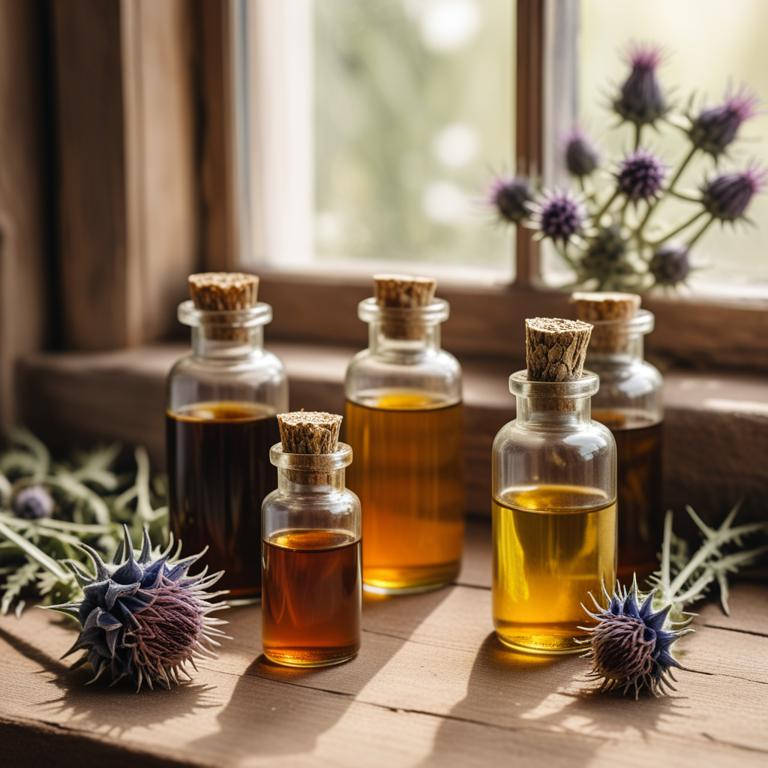
Herbal preparations can be helpful in reducing lymph node swelling due to their anti-inflammatory and antioxidant properties.
A decoction is a strong liquid made by boiling herbs in water, which can help to break down and remove toxins that cause inflammation. This can be especially effective for herbs like Echinacea, which has been shown to reduce swelling and speed up healing. A tincture is a concentrated liquid extract of herbs that can be taken internally to help reduce inflammation and promote healing. Tinctures of herbs like Calendula and St. John's Wort have been used to reduce swelling and promote healing in the body.
An infusion is a liquid made by steeping herbs in hot water, which can be drank to help reduce inflammation and promote healing. Infusions of herbs like Ginger and Turmeric have been used to reduce swelling and pain in the body. Capsules are a convenient way to take herbs internally, and can be filled with powdered herbs like Goldenseal, which has been shown to have anti-inflammatory properties. A salve is a topical cream or ointment made from herbs that can be applied directly to the skin to reduce inflammation and promote healing. Salves made from herbs like Arnica and Comfrey have been used to reduce swelling and promote healing in the body.
These herbal preparations can be used individually or in combination to help reduce lymph node swelling and promote overall health.
Additional Resources:
What herbs can worsen lymph node swelling and should be avoided?
If you're experiencing lymph node swelling, it's a good idea to be cautious with certain herbs that might make it worse.
Ginkgo biloba, for instance, can cause inflammation, which might irritate your swollen lymph nodes. Ginseng, specifically Panax quinquefolius, is known to increase blood flow, but this can also lead to more inflammation in areas like your lymph nodes. Cinchona officinalis, also known as the source of quinine, can be a problem because it's a stimulant.
Stimulants can increase your heart rate and blood pressure, which might put extra pressure on your swollen lymph nodes. Licorice root, or Glycyrrhiza glabra, can also be a concern because it can increase blood pressure and worsen fluid retention. This can make your lymph node swelling even worse. It's always best to talk to a healthcare professional before using any of these herbs, especially if you're already experiencing health issues.
They can advise you on the best course of action and help you avoid any potential problems.
FAQ
Are there any specific herbs that can prevent lymph node swelling?
Some herbs like echinacea and ginseng may help reduce swelling in lymph nodes.
Echinacea is often used to boost the immune system and fight off infections that can cause lymph node swelling.
Ginseng is thought to have anti-inflammatory properties that may help reduce swelling and promote healing.
Is it safe to use herbal remedies for lymph node swelling during pregnancy?
It's generally best to avoid using herbal remedies for lymph node swelling during pregnancy.
Some herbs can cause problems, like bleeding or birth defects, so it's better to stick with safe options.
If you're concerned about swelling, talk to your healthcare provider about what you can use instead.
Are there any herbs that can reduce the frequency of lymph node swelling?
Echinacea and turmeric are two herbs that may help reduce the frequency of lymph node swelling.
They contain compounds that have anti-inflammatory properties, which can help soothe and calm the lymph nodes.
Some people also find that ginger and goldenseal can have a similar effect, although more research is needed to confirm this.

